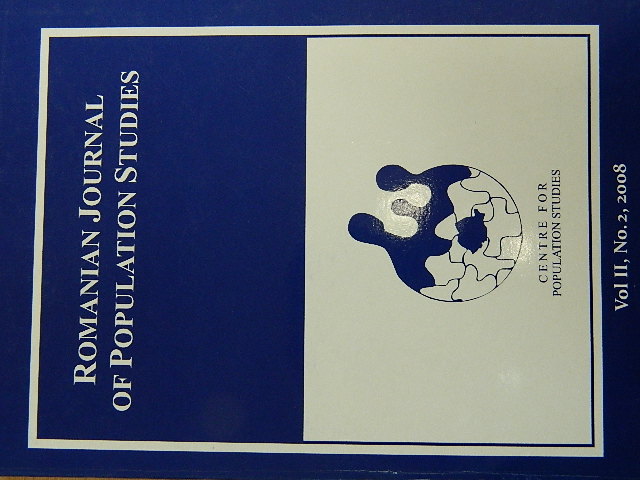

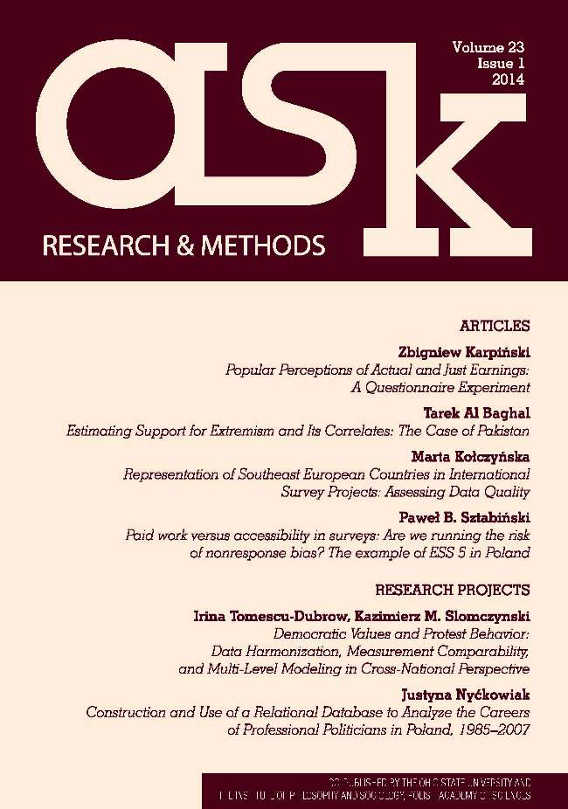
Keywords: accessibility in surveys; nonresponse bias; paid work as a variable in surveys; European Social Survey
Research data shows that nonresponse in surveys is increasingly connected with respondents’ lack of time caused, among others, by respondents’ performance of paid work. Since paid work is one of the key sociological characteristics, the underrepresentation of working citizens creates a risk of nonresponse bias in surveys. This paper draws on data from the fifth round of the European Social Survey in Poland to demonstrate how realistic this risk is. Apart from paid work, the paper analyses three dimensions of workload: total work hours, regular/irregular nature of work and place of residence/place of work (the same or different location) and time spent commuting to/from work. The results of our analysis show that there is a risk of nonresponse bias associated with the performance of paid work and time spent commuting to/from work in another location. This risk may be reduced by increasing the number of contact attempts with hard-to-reach respondents.
More...Keywords: Illegal work(ers); democracy and socio-economic development; right to fair labour practices; employee; social transformation;
This article analyses whether prostitution (illegal work) and illegal immigrants have access to the protective ambits of statutory framework regulating employment relations. Its objective is to examine the scope of labour law, considerate of ever changing trends in the modern world of work. It utilizes the two notable precedents founded in Kylie v CCMA and Discovery Health v CCMA. This is considerate of inherent dynamics in contemporary labour relations where the majority of workers have been displaced into grey areas that offer little or no protection, thus rendering workers vulnerable to exploitation. The article highlights a rising tension arising out of exploitative labour practices and socio-economic factors, and the need for labour law to respond. It has been found that courts have creatively invented strategic methods that have successfully aided efforts of protecting vulnerable workers engaged in economic activities under precarious circumstances. This is to the extent that the Constitution, 1996 and the Labour Relations Act 66 of 1995 have been interpreted in a manner that enhances worker protection, which fulfils the purpose for which labour law was enacted.
More...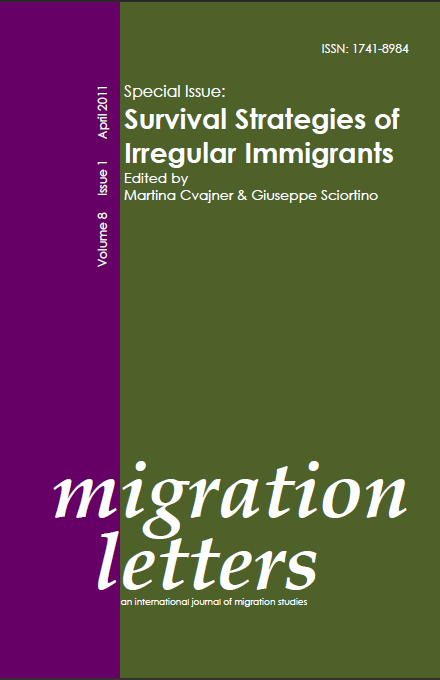
Keywords: Azerbaijani migration; survival strategies; industrial work; women’s labour;
In recent years, Turkey has become a popular destination for the irregular migration of Azerbaijani people. Every year almost half a million Azeri come to Turkey for various reasons. However, most of these migrants seek employment in the large Turkish informal sector. This paper is an attempt to build the survival strategies of Azerbaijani migrants into the existing migration literature and show how these strategies can also be a way of generating a successful export industry in Turkey. In this regard, survival strategies developed by Azeri migrants in response to the Turkish migration regime, which is designed to exclude every migrant not considered somehow ethnically Turk, include family migration, maximising family income while minimising the cost of daily family survival.
More...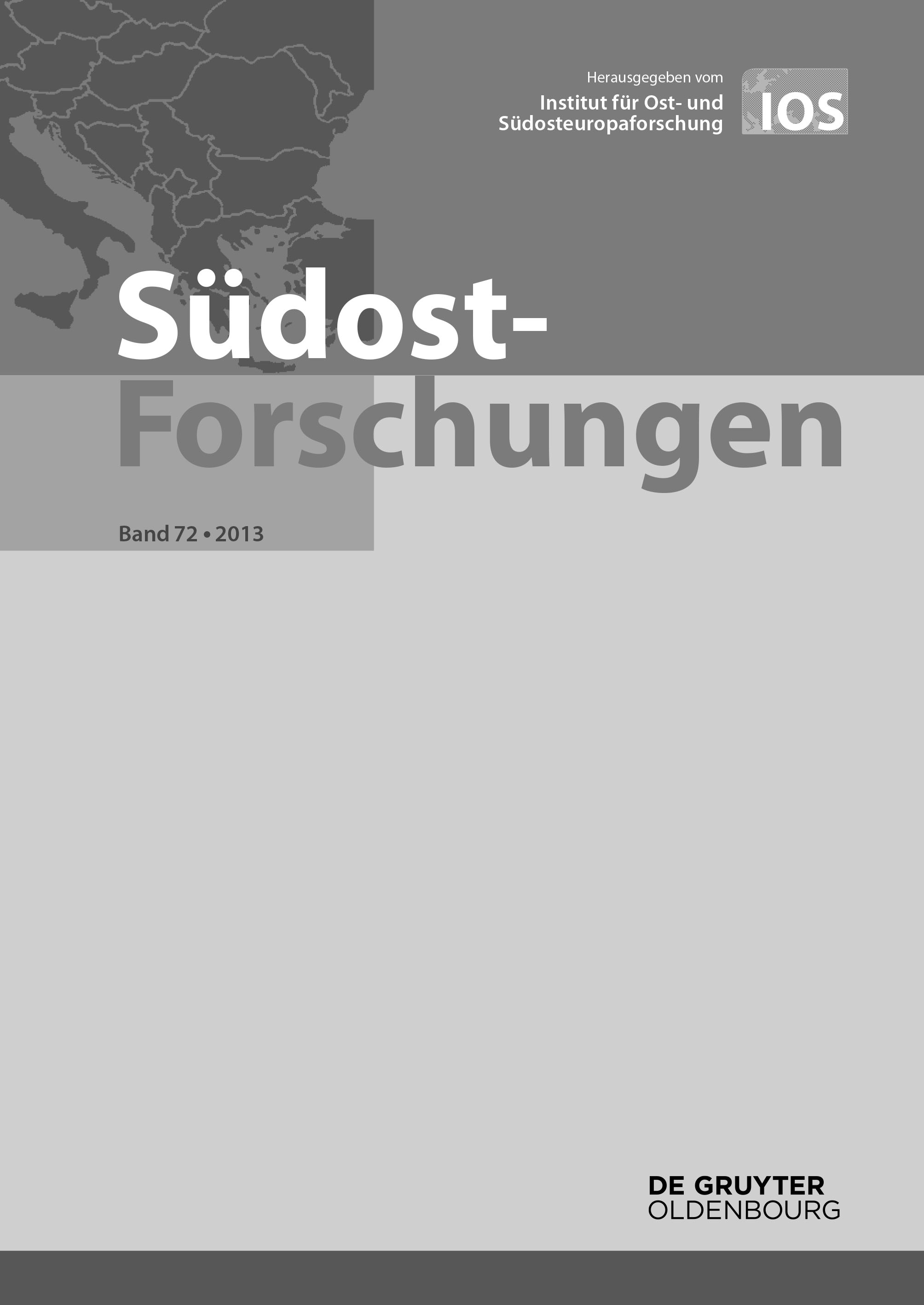
The article raises some crucial questions related to the “boundaries of work”: how to conceive, to name, and to approach the limits between what is socially, legally, economically considered “work”, and what is not? The text provides a critical review of the rich interdisciplinary debate around this issue, considering the merits and disadvantages of categories such as “non-work”, “informal sector”, “multiversum of work” and other related ones. Focusing especially on the historiographical aspects of the debate, and considering their applicability to the South-East European region, the article aims at providing theoretical considerations, which can contribute to the innovation of the social history of labour in this region.
More...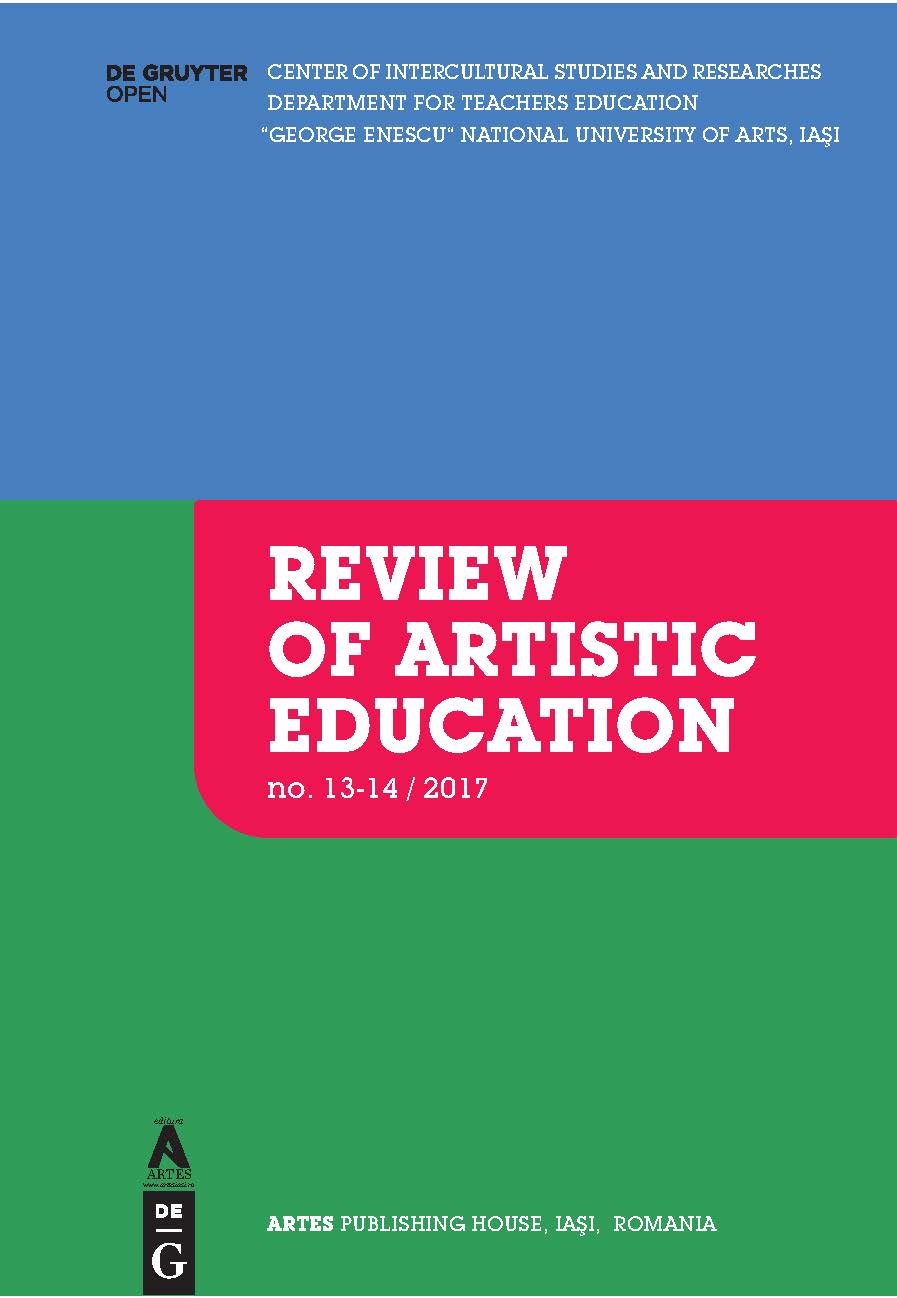
Keywords: professor; student; art public; artistic mediation;
Starting from the cultural mediator model, the teacher, in his turn, can be positioned from the perspective of the assumed positioned of art mediator. Thus, his role would be to make art accessible to a public under training (students). Approaching activities in an upward direction - from the uninitiated (students) towards the professionals (artists), the designed activities will thus start from the developmental needs of the students. Finding ways of connecting youth and art by introducing art into everyday life and identifying examples where elements, skills and knowledge about art can be applied in everyday life and the permanent concentration of the mediator professor on the public/youth/students and not on the works of art and, thus placing young people at the heart of artistic mediation are several ways of opening, awakening and training the interest of the new art public.
More...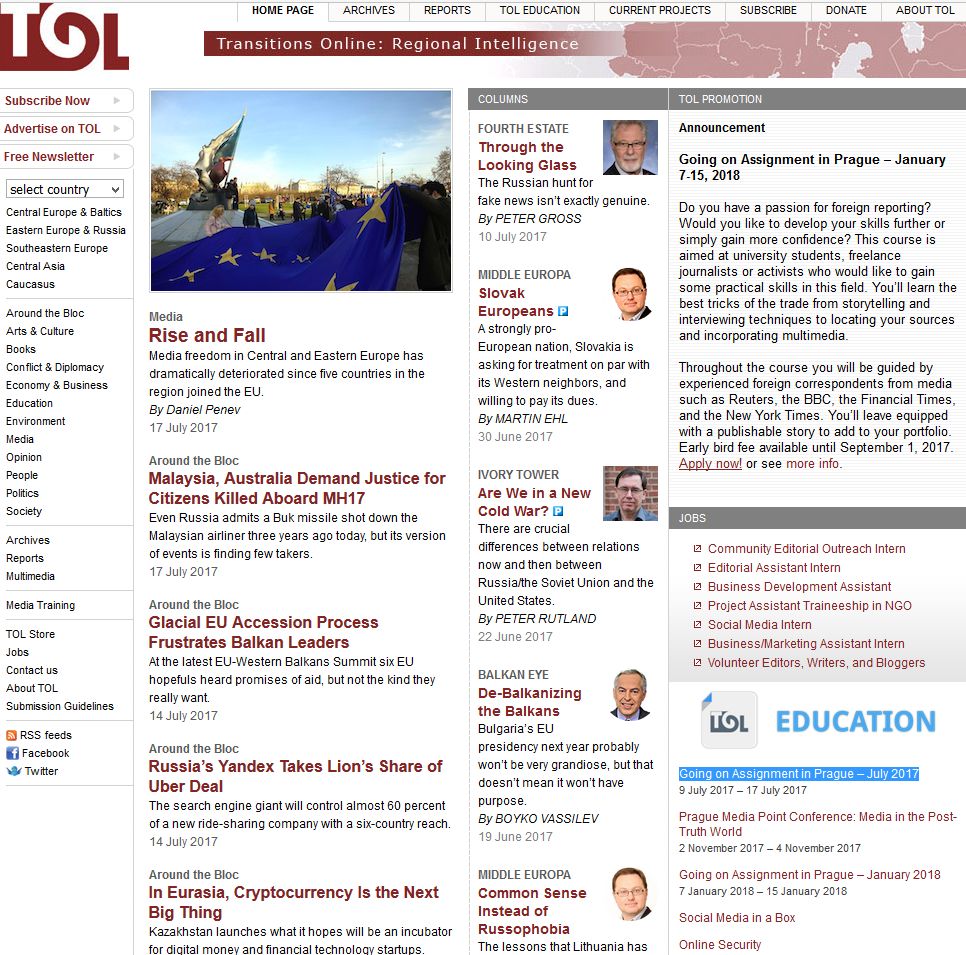
Keywords: Kosovo; Pristina; Down; syndrome; cafe; disabilities
In addition to employing people who have the genetic disorder, bar X21 is also raising awareness about the syndrome.
More...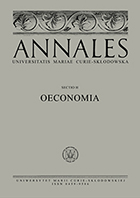
Keywords: marketing research; internal marketing; Counterproductive Work Behaviours (CWB);
The article describes the use of marketing research in relation to the internal market of an organization, particularly in the context of identifying and measuring the prevalence of Counterproductive Work Behaviours (CWB), e.g. mobbing, theft or destruction of company’s property, verbal and non-verbal violence against employees. The article consists of three main parts: 1. Internal marketing vs. external marketing, 2. Marketing research in internal marketing and 3. CWB and measurement of the same.
More...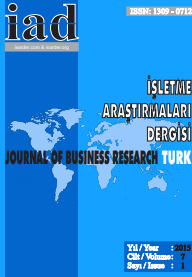
Keywords: Social intelligence; work-family conflict;, family-work conflict;
In today, life fiction of human being has intensively focused on work and home dilemma. Greedy expectations of these two institution (which are always tried to be protected) are always in the mind of the individual. If harmony between competing expectations cannot be achieved, work-family/family-work conflict arises. It is wondered that whether or not the tension between work and family can be managed with social intelligence, in which it makes strong the ability of establishing good relations with other people. The aim of this study is examining social intelligence in organizational context and exhibiting whether or not social intelligence takes a reducing role for work-family/family-work conflict. Findings of the study suggest that social intelligence and its all dimensions have negatively and significantly related with family-work conflict and social intelligence takes a role in reducing family-work conflict.
More...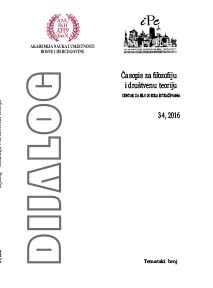
Keywords: Émile Durkheim; sociological legacy; posterity; Durkheimian school; sociological theory;
Émile Durkheim (1858–1917) is the founding father of French sociology and his influence has extended well beyond the borders of France. He died one hundred years ago, on the 15th of November 1917. One century after his death, what does our discipline still owe to the works of the man who is known as one of its founding fathers? What new questions and answers have been inspired by his ideas? How have we embraced them and what have the consequences been in theoretical, conceptual and methodological terms? What and why does contemporary sociology owe, for better or for worse, to the scientific writings of Durkheim?
More...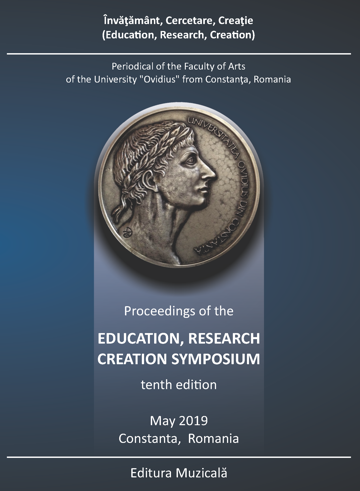
Keywords: Carmen Petra-Basacopol; Psalms; lied; choral music; neoclassicism; modernism;
Carmen Petra-Basacopol is a composer whose contemporaneity honours us. Born in 1926, in Sibiu, Carmen Petra-Basacopol crosses the entire 20th century and part of the 21st century with a creation open to stylistic and spiritual experiences. The sacred music enriches and personifies the componistic profile of Carmen Petra-Basacopol, her concerns focusing on symphonic music, chamber music - instrumental, vocal and choral. The work Psalms, op. 66 (1992), for the mixed choir, reveals, through a chain of three psalms (22, 129, 46), a thorough and inspired musical science.
More...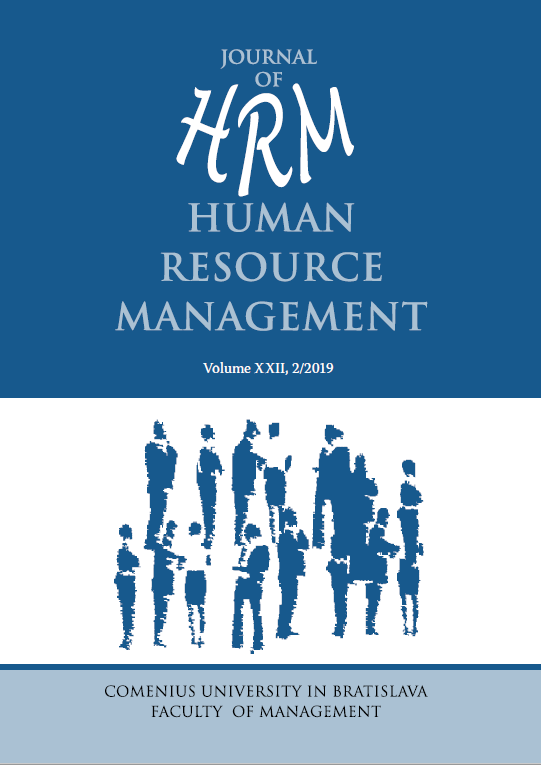
Keywords: criminal history; selection; gender; training; diversity;
Obtaining job relevant skills while incarcerated is an important component to overcoming the stigma of a criminal history when seeking employment. Using a focus group research design, we explored occupational roles and feelings of preparedness among men and women housed in work release facilities. We found: 1) women perceived their training to be of less value as compared to their male counterparts, 2) women and men perceived differences related to their receipt of employment assistance, 3) women and men differed in explanations of prior work experience, and 4) perceptual differences appeared to be affected by the frequency of incarceration.
More...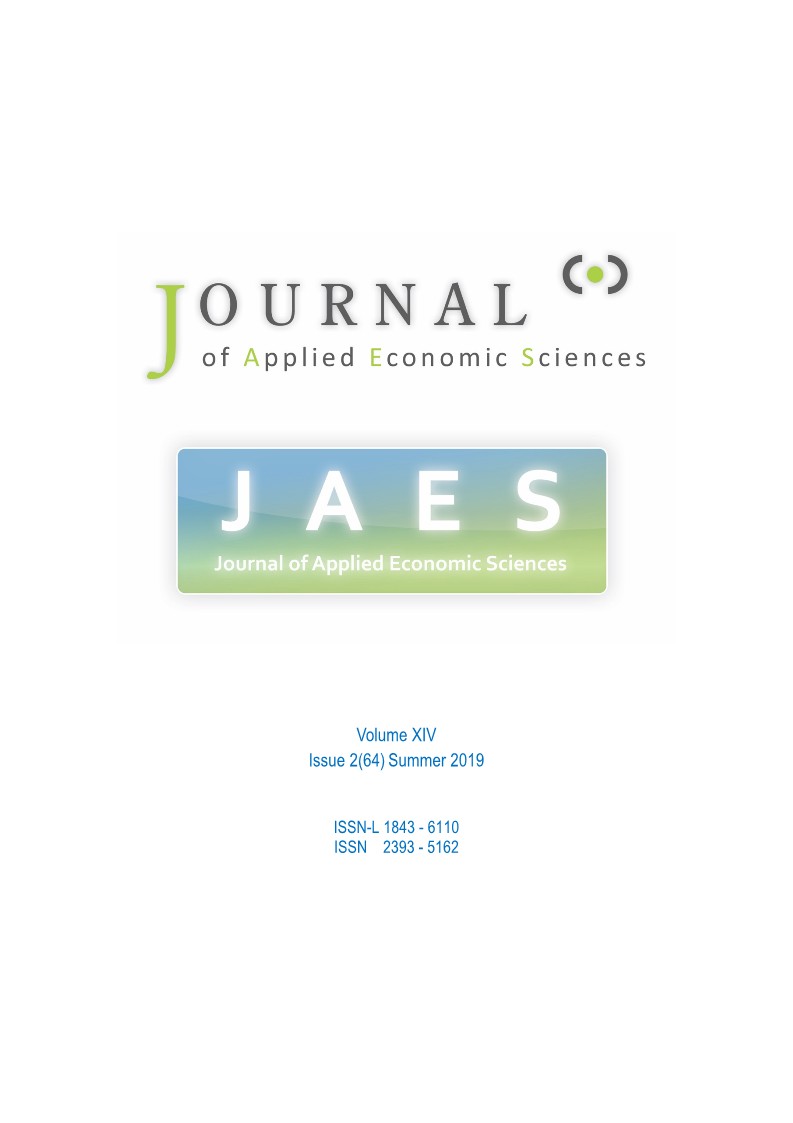
Keywords: leadership style; work motivation; employees’ performance; structural equation modelling;
This study aims at examining the influence of leadership style on employees’ performance through work motivation at the Government Bureau of Central Kalimantan, Indonesia. The sample was determined by using purposive random sampling technique and the instrument to collect the data is by using questionnaire. The number of sample collected was 140 employees who work in the public sector of the government bureau in the Central Kalimantan Province, Indonesia. These data were then analyzed statistically by using structural equation model (SEM). This study confirms that leadership style has significant influence toward employees’ performance of the public sector of the government bureau in Central Kalimantan. Also, it was found that work motivation played an important role in mediating the influence of leadership style on employees’ performance. This finding suggests that both leadership style and work motivation need to be given attention in order to increase employees’ performance of the government bureau at the Central Kalimantan.
More...Keywords: Thomas Ligotti; the Weird; neoliberalism; corporate horror; pessimism;
This article posits Thomas Ligotti’s weird novella, “My Work is Not Yet Done,” as an ideal site for interrogating the malicious effects of the neoliberal project. Neoliberalism, namely the depoliticization of economies and privatisation of state apparatus, has developed unevenly across the globe since the 1980s. Though ostensibly promoting freedom and prosperity, this socioeconomic framework has contributed to widespread financial inequalities, exacerbated global climate crises and, during the COVID-19 lockdown, endangered countless lives for the sake of economic progress. Corroborating Mark Fisher’s conceptualisation of ‘capitalist realism’, proponents of neoliberalism have normalised its principles by maintaining the illusion that there are no alternatives to them. Weird fiction is therefore uniquely positioned to depict the impacts of neoliberal dogma, based, as it is, around granting an outside perspective on presumed epistemological structures. Thomas Ligotti is one of the most celebrated writers of weird fiction in the last thirty years. This article will console his definition of the weird with Fisher’s own in order to demonstrate that Ligotti uses a sense of ‘real externality’ to critique neoliberalism’s profit-driven individualism. While being a self-proclaimed socialist himself, Ligotti states that “My Work is Not Yet Done” uses the corporate world to depict his own pessimistic philosophy. But by analogising the metaphysics of pessimism through an archetypical corporation, Ligotti simultaneously reveals the inhumanity of neoliberalism itself. As such, this article argues, Ligotti’s novella represents a timely critique of the neoliberal project and evidence that weird fiction is uniquely positioned to repudiate the value of unjust hegemonies.
More...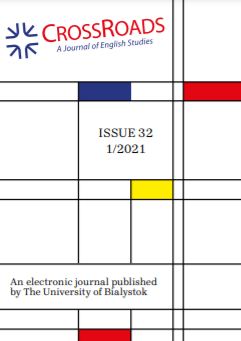
Keywords: Richard Yates; autofiction; self-narrative; short stories;
Richard Yates, most remembered for his Revolutionary Road (1961), was also the author of two fine and exceptionally well-crafted collections of short stories, Eleven Kinds of Loneliness (1963) and Liars in Love (1981). Yates was a writer of exceptional perception and unflinching clarity, yet some have criticized his work as drawing too heavily on autobiographical content. This article seeks to examine Yates’ 1963 story “Builders” to gain insight into this extraordinary author’s understanding of the writing process, his use of autobiographical or semi-autobiographical content, and to suggest new approaches for work on this still under-appreciated twentieth century author.
More...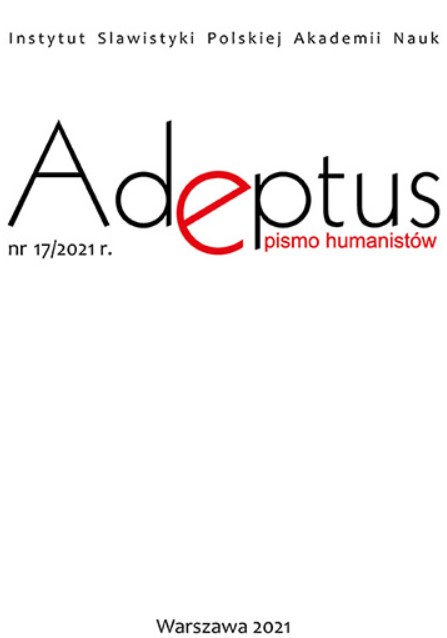
Keywords: Karel Čapek; War With the Newts; Theodor W. Adorno; literature; sociology;
In this text, I interpret Karel Čapek’s novel War With the Newts (1936) as a sociological work and analyze the concept of the modern age that it presents. First, I show in what sense Čapek’s work was sociological. Following Theodor Adorno, I suggest that the difference between literature and sociology is not of a fundamental but of a historical and analytical nature, and that what defines sociology is not method, empiricism, or explicitly defined concepts, but the insightful notion of social totality. In Čapek, I analyze a totality that I find in his concept of the modern age. Such an analysis provides insight into the self-destructive power of modern society. I suggest that Čapek’s portrayal of modernity still applies today and that we can recognize the same patterns he presented in the world around us.
More...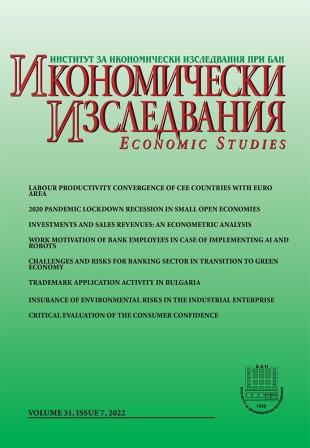
Keywords: Work motivation; Hertzberg theory; motivators; Equity theory; Expectancy theory; intrinsic motivation; financial and non-material motivation; banking
The dynamic changes in the banking industry as a result of the AI application and robotisation lead to substantial organisational changes and redefining the roles of bank employees. This, of course, has an impact on bank employees’ work motivation. In 2020-2021 the businesses, including banking, encountered one more influencing factor – the Covid-19 pandemic and related quarantine and lockdown measures, leading to forced move to remote work. This research aims to find out if the work motivation of the bank employees has changed, and if yes – in what directions.The analysis is based on the findings of a survey, conducted in the two countries in the period November 2020 – February 2021 and the results show some significant differences between the work motivation in the banking industry in the two countries. The questionnaire items target the main work motivation factors. Two working hypotheses were studied in this research: H1: The intensive implementation of AI in the banking sector positively affects the work motivation of bank employees in Russia and Kazakhstan. H2: The age of the employees matters for appreciation of the AI implementation, as younger employees 18-40 are more positive compared to employees beyond 40. H1 was confirmed, while H2 was confirmed regarding the difference in the opinions and motivation of the two age groups (under 40 and above 40 years of age), but not in regard to the appreciation of the changes by the two age groups.The main beneficiaries of the results of this research are the bank managers, both HRM and line managers, who are directly responsible for supporting the work motivation in the process of intensive implementation of AI and robotisation, e.g., chatbots, in the sector. It is also believed that the managers in the other sectors of the economy may benefit from these findings as well.
More...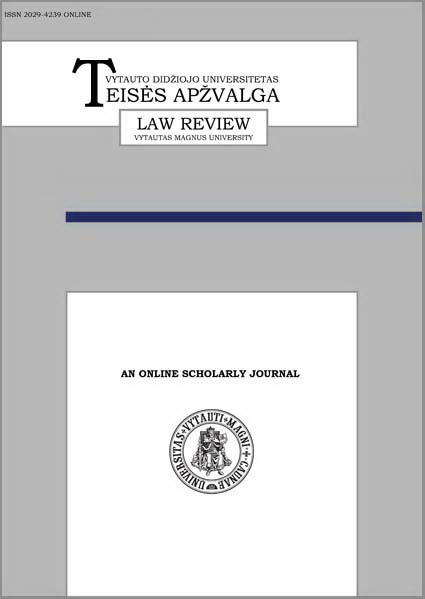
Keywords: Directive 2001/55/EC; Temporary protection; Right to work; Discrimination and migrants;
The escalation of the conflict with Russia in Ukraine has led to the mass displacement of people from Ukraine saving themselves from the war. In most cases, displaced persons have found their safe haven in the EU countries. The massive influx of displaced persons has put on the agenda the need to review the EU policy in light of the activation of Directive 2001/55/EC on temporary asylum to better integrate massively displaced persons of different asylum statuses into the society of the host countries. This article aims to consider the realization of the right to work of massively displaced persons as a condition for integration into the host societies. First of all, the differences between refugees, economic migrants, and persons with temporary protection are considered, since they have certain differences and specific features being integrated into labor markets. It has been established that the key aspect of integration of refugees should be observance of the ideas of recognition and enforcement of universally recognized international human rights. The paper identifies the realization of the right to work as one of the key elements in implementing the integration of the displaced persons in the receiving states and determines that displaced persons have the potential to make a positive contribution to the receiving states, if they are integrated into the labor markets of the receiving states. The paper describes the need to realize the right to work, taking into account all the fundamental principles consistent with the concept of decent work. It also identifies the factors that negatively affect integration in the realization of the right to work, elimination thereof should be a key focus of the integration strategy for the displaced persons.
More...Keywords: remote work; cyber security; organisational culture; training policy
Objectives:Specialists dealing with cyber security of organisations often cite the saying that a chain is only as strong as the weakest link in it. Experts alert that human error is the cause of more than half of the events in which corporate data has been lost. This issue becomes crucial in the times of widespread remote work. Since many professional duties have been performed recently at home or ‘café’ environment, organisations have been exposed to numerous threats, financial and image losses. The aim of the article is to analyse these threats and to discuss the role of organisational culture in creating working environment ensuring cyber security.Material and methods:The starting point is the presentation of cyber security threats related to individual forms of remote work, such as work on company computer equipment outside the employer's premises, work on private computer equipment and work on computer equipment provided by a coworking centre.Results:Then, (based on the classic concept of Edgar Schein), three levels of organisational culture will be presented.Conclusions:Eventually, the article will indicate actions to be taken at each of these levels in order to foster employees’ behaviour aimed at increasing cyber security.
More...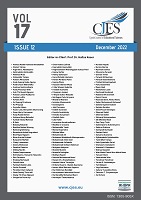
Keywords: Laboratory work; mobile applications; smartphone; research skills; virtual laboratory;
The authors analyzed the relevance and expediency of using the smartphone-based laboratories in physics. The purpose of the study is to analyze the effectiveness of the smartphone laboratory in the formation of research skills among students. The article deals with the use of mobile applications not to replace the real experiment, but to supplement it. To determine the effectiveness of using mobile applications when performing laboratory work in physics, an experiment was conducted among 9th grade students at a school in Taldykorgan (Kazakhstan). During the experiment, the difference between the performance indicators of students in control and experimental groups was identified and the significance of the difference in these indicators was evaluated using the “χ2-square” criterion. The significance of the obtained results is that they provide an effective alternative approach to the teaching process in educational institutions where the traditional methodology does not bring the desired pedagogical effect.
More...